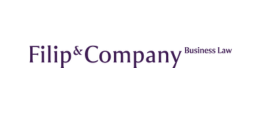Last week the European Union took a major step towards regulating the fast-growing cryptocurrency market with the final approval of the Regulation on Markets in Crypto-Assets (“MiCA”). The new regulation was approved by the European Parliament on 20 April 2023, and is now subject to formal endorsement by the European Council and publication in the Official Journal of the European Union.
MiCA Regulation. Scope and applicability
MiCA is the EU regulation governing the issuance and provision of services related to crypto-assets and stablecoins. It is one of the most expected pieces of EU legislation in the last years and it represents the first and only such regulatory framework of its kind in the world, paving the way for other jurisdictions to follow. MiCA Regulation will become applicable 18 months after its entry into force, save for the provisions related to e-money tokens and asset-referenced tokens, which will enter into application immediately upon the entry into force of the regulation. Thus, we expect to have a fully applicable framework crypto-assets legislation in the EU at the end of 2024, beginning of 2025.
MiCA Regulation sets out new common ground rules for the issuance, supervision, consumer protection, and environmental safeguards of crypto-assets (including cryptocurrencies). It includes safeguards rules against market manipulation and financial crime, such as mandatory reporting of suspicious transactions, and requires issuers of stablecoins to hold a reserve of assets to back the value of the tokens. According to the MiCA Regulation draft, a crypto-asset is defined as “a digital representation of value or right which may be transferred and stored electronically, using distributed ledged technology or similar technology”. The regulation distinguishes between multiple types of crypto-assets and sets-out specific requirements for crypto-assets issuers and crypto-assets service providers, in line with previous regulatory requirements set-out for other financial services (such as payments and e-money issuance).
While MiCA Regulation is a significant step forward in the crypto-assets market, it leaves several components of the current financial digital assets outside its scope. MiCA does not regulate the decentralized finance industry, the non-fungible tokens (NFTs) nor the crypto-asset finance transactions. All these variables will probably trigger additional analysis and legislative frameworks in the future.
Impact on Romanian market
The adoption of the MiCA Regulation is expected to have a significant impact on the Romanian financial regulatory environment as well. For example, it will require Romanian companies dealing with crypto-assets to register with the relevant authorities and implement anti-money laundering and counter-terrorism financing measures in relation to its clients. Furthermore, the Romanian legislation will be required to adjust and adapt to this new regulation, in particular the current consumer protection and e-money legislation which converge partially with MiCA Regulation.
Transfer of Funds Regulation
Notably, MiCA Regulation is not the only significant step towards regulating the cryptocurrency market in the EU. On the same date, the European Parliament also approved the Regulation on information accompanying transfers of funds and certain crypto-assets. This regulation aims to prevent the use of crypto-assets for money laundering and terrorist financing by requiring detailed information about the sender and recipient to accompany transfers of such assets. This information will be accessible to financial intelligence units and law enforcement agencies, helping to identify and investigate suspicious transactions.
Overall, the approval of the MiCA Regulation, together with the regulation on funds transfer marks an important milestone in the regulation of the crypto-assets market in the European Union and consequently of cryptocurrencies. While there are still some steps to be taken before it becomes fully effective, the regulations are expected to bring greater transparency, stability and protection to investors and consumers of crypto-assets, while also providing safeguards against financial crime and market manipulation.
By Rebecca Marina, Senior Associate, and Marius Gheldiu, Associate, Filip & Company


